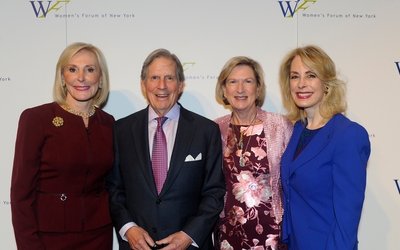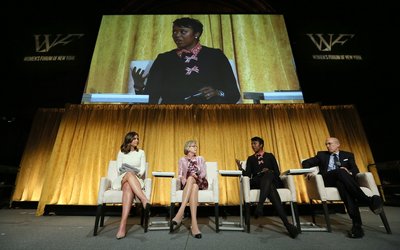Diversity In Action
8 March 2018
Diversity and inclusion are often discussed topics for corporate America. From company trainings to conferences to boardrooms, a great deal of lip service is paid to these topics. But what steps do and can we put into place to take action and effect change?
This year in particular has been an important one for action and change for women. Beyond the obvious power of the recent #MeToo campaign, a couple of recent events caught my attention and caused me to reflect on the active role that our search community can play in ensuring that diversity and inclusion are not just topics of discussion, but are actively pursued, with pride and passion.
As an avid runner, I watched the recent New York City Marathon with my heart in my mouth. Was this the year that an American woman would win? As the finish line drew nearer, Shalane Flanagan prevailed and in doing so, broke a 40-year drought for American women in the race.
In reading about this historic achievement, I came across a New York Times article by Lindsay Crouse, “How the ‘Shalane Flanagan Effect’ works”. Crouse describes not only Shalane’s accomplishment, but also the work that she has done in developing and growing the female running talent around her.
But perhaps Flanagan’s bigger accomplishment lies in nurturing and promoting the rising talent around her, a rare quality in the cutthroat world of elite sports. Every single one of her training partners — 11 women in total — has made it to the Olympics while training with her, an extraordinary feat. Call it the Shalane Effect: You serve as a rocket booster for the careers of the women who work alongside you, while catapulting forward yourself.
“Shalane has pioneered a new brand of ‘team mom’ to these young up-and-comers, with the confidence not to tear others down to protect her place in the hierarchy,” said Lauren Fleshman, who became a professional runner in the early 2000s, around the same time Flanagan did. “Shalane’s legacy is in her role modeling, which women in every industry would like to see more of.”
The story certainly doesn’t end with Shalane’s New York victory. The next major US marathon, Boston 2018, has assembled the deepest US women’s elite field in recent history with Shalane being joined by at least seven other formidable US women marathoners.
Back in the corporate world, I recently had the privilege of attending the Breakfast of Corporate Champions event, hosted by the Women’s Forum of New York. This event celebrates those S&P 500 and F1000 Companies that have at least 25% or more Board seats held by Women.
Photos from the 2017 Breakfast of Corporate Champions courtesy of The Women's Forum of New York.
The Breakfast of Corporate Champions is chaired by Janice Ellig, CEO of The Ellig Group, a member firm of IIC Partners. This breakfast is held every two years, for the last eight years. The objective? To shine the spotlight on the entities that have achieved a high percentage of women on their boards, with the goal of one day ending the event, as equal representation will ultimately be a given.
The work that Janice Ellig has done in encouraging and advocating to have more women on corporate Boards is to be commended, and perhaps we can refer to the strides that have been made in this area as the ‘Janice Ellig Effect’. As with my earlier example of Shalane Flanagan, Janice Ellig has been vocal in developing women around her, recommending women into top leadership and Board positions and speaking out on behalf of this issue.
As executive search consultants, we are often tasked with consulting to our clients on specific topics, and providing input and guidance on talent management issues. More and more, we are being asked to provide a diverse slate of candidates. I would ask you to consider challenging your clients about what this truly means, and how they take action to support and develop diverse talent.
While women are underrepresented on Boards, so too are other groups. Consideration must also be given to race, ethnicity, sexual orientation, age and disability. We must also broaden our definition of diversity to also take into account diversity of values and beliefs, including the different ways that people think, behave and interact.
To do our best work for clients, we have an obligation to act. Not just to check a box and present a diverse slate of candidates, but to take action – and urge clients to do so as well. Diversity and inclusion are not a chore, they are the things that make us all better, and lead us to greater success in the ever changing and competitive business landscape.
Our clients may be hesitant to embrace change, but we must be the champions and the actors of diversity and inclusion. In 20 years time when we look back at the progress that has been made, will our clients be the winners?






